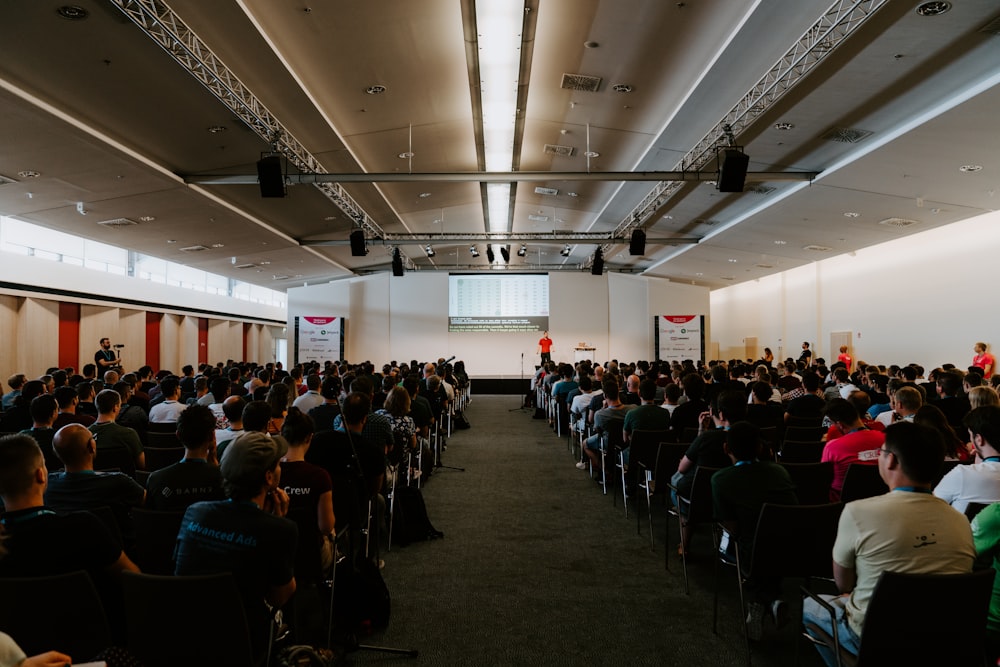What Makes an Event Successful: Top Key Considerations
Events serve diverse purposes, from marking special occasions to imparting knowledge, and span across various sectors, drawing attendees with varied motives and dreams. It’s logical to infer that an event’s triumph hinges on its objectives and the demographic it aims to engage. Hence, successful events are inherently unique, and tailored to their specific aims and audience.
In this blog, we delve into the essence of event triumph, the importance of event assessment, and the pivotal elements that elevate a mundane gathering into an unforgettable affair.
What Does a Successful Event Look Like?
When it comes to events, success is subjective. It’s crucial to understand that the degree of success an event achieves hinges entirely on its underlying purpose. Therefore, there’s no one-size-fits-all measure applicable to all events.
To unravel what constitutes event success, you need to rewind to the beginning of the event planning process and pinpoint its objectives and aims. This provides insight into why the event was arranged and what it aimed to accomplish, allowing for a comparison with the actual outcomes.
For instance, suppose a company organized an event to announce the launch of a new product or service. This event would likely have been designed to boost brand visibility, enhance publicity surrounding the launch, and broaden the product or service’s exposure. As a result, success could be gauged by factors such as media coverage generated or the brand’s social media mentions post-launch.
Accurately evaluating event success is a pivotal aspect of event planning. In the following section, we’ll guide you through organizing an event in a manner that simplifies the assessment of its effectiveness.
Planning a Successful Event: Key Considerations
Successful event planning marks the initial stride in sidestepping glitches and orchestrating a seamless sequence of activities. In this phase, four primary factors come into play: audience engagement, smooth logistics, content and speakers, and post-event follow-up. With careful planning and execution, you can hit these targets and realize your event’s objectives.
Audience Engagement
Central to a triumphant event is the ability to captivate and involve attendees. Meticulous planning is key here, tailoring the event to suit the interests and preferences of your target audience. Here’s how you can keep attendees engaged and enthused:
- Diverse Formats
Mix up the presentation styles to keep attendees engaged. Blend keynote speeches, workshops, and interactive sessions to craft a vibrant and dynamic agenda. Spice things up with entertainment elements like live performances, contests, or interactive activities to add excitement.
- Live Interactions and Feedback
Interactivity fosters engagement. Encourage real-time audience participation through live polls, Q&A sessions, and social media integration. When attendees can actively contribute and receive immediate responses, they feel more connected to the event.
- Networking Opportunities
Networking is often a primary motivator for event attendance. Facilitate networking by providing spaces for informal discussions and networking sessions. Icebreakers or matchmaking features in event apps can help attendees connect with like-minded individuals.
- Visual and Sensory Appeal
Create an environment that tantalizes the senses. Pay attention to event design, incorporating captivating visuals, lighting, and decor that resonate with the event theme. Consider using technology like AR or VR to create immersive experiences that leave a lasting impression.
Seamless Logistics
Efficient logistics management is crucial for a successful event. From selecting the venue to managing registrations, smooth logistics are essential. You’ll need a well-coordinated team with attention to detail and the ability to adapt to challenges. Have contingency plans in place to handle unexpected issues and ensure a stress-free experience for attendees.
High-Quality Content and Speakers
Compelling content and expert speakers elevate the event experience. Thought-provoking speeches, informative workshops, and engaging presentations enrich attendees’ experience. A diverse lineup of speakers brings different perspectives and expertise to the table, enhancing the event’s value.
Post-Event Follow-Up
Event success extends beyond the event itself. Leverage the post-event phase to nurture connections and relationships. Follow up with attendees, express gratitude for their participation, and provide resources or session recordings. Gathering feedback through surveys helps identify areas for improvement and provides valuable testimonials for future marketing efforts.
Assessing Event Success
Ticket Sales
One of the most common Key Performance Indicators (KPIs) for measuring event success is the number of tickets sold. If your event is free, you can instead track the number of registrations. This metric reflects the popularity of your event among your target audience and assesses the effectiveness of your advertising and promotional efforts.
Revenue from Ticket Sales
Another KPI is the revenue generated from ticket sales. This metric allows for straightforward goal-setting and evaluation, as it’s easy to estimate the desired revenue and measure against it.
Event Profit
The overall profit from an event is a significant indicator of success, particularly if financial gain is one of your objectives. It also reflects your success in budgeting for the event and whether you exceeded your initial investment. For non-profit events, this metric may be replaced with the amount of money raised.
Attendance
The number of attendees directly indicates event success. Comparing ticket sales or registrations to actual attendance provides nuanced insights into the event’s performance, although discrepancies may exist due to legitimate reasons for absence.
New Attendees
For recurring events, measuring the number of new attendees signifies growth in reach and audience. It indicates that your event’s reputation is attracting fresh interest. Comparing new attendee numbers over time helps identify contributing factors.
Press Coverage
Press coverage enhances an event’s reputation and the organizing brand’s credibility. Many corporate event planners consider the amount of press coverage received as a success metric, especially if journalists were invited or press materials were distributed.
Social Media Mentions
Social media mentions contribute significantly to an event’s success and reputation. Tracking mentions through tags, comments, or hashtags offers insight into social media engagement and event impact.
Social Media Engagement
Analyzing social media engagement provides insights into the effectiveness of social media campaigns. It helps identify successful content types and informs future strategies.
Event App Usage
For events with dedicated apps, post-event data analysis reveals the app’s effectiveness. Assessing popular features, soliciting reviews, and refining design based on feedback improves future app utilization.
Lead Generation
Networking events and conferences benefit from measuring leads generated, reflecting the success of matchmaking efforts or client/partner invitations.
Attendee Satisfaction
Ultimately, attendee enjoyment is a subjective but crucial measure of event success. Gathering feedback and assessing overall satisfaction levels provide valuable insights for future improvements.


